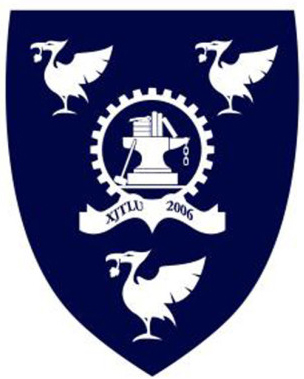ITNEC 2024 Keynote Speakers
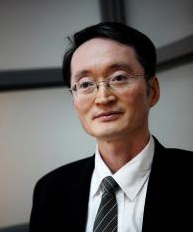
Prof. Steven Guan, Xi'an Jiaotong-Liverpool University
Steven Guan received his BSc. from Tsinghua University and M.Sc. (1987) & Ph.D. from the University of North Carolina at Chapel Hill. He is currently a Professor and the Director for Research Institute of Big Data Analytics at Xi'an Jiaotong-Liverpool University (XJTLU). He served the head of department position at XJTLU for 4.5 years, creating the department from scratch and now in shape. Before joining XJTLU, he was a tenured professor and chair in intelligent systems at Brunel University, UK.
Prof. Guan has worked in a prestigious R&D organization for several years, serving as a design engineer, project leader, and department manager. After leaving the industry, he joined the academia for three and half years. He served as deputy director for the Computing Center and the chairman for the Department of Information & Communication Technology. Later he joined the Electrical & Computer Engineering Department at National University of Singapore as an associate professor for 8 years.
Prof. Guan’s research interests include: machine learning, computational intelligence, big data analytics, mobile commerce, modeling, networking, personalization, security, and pseudorandom number generation. He has published extensively in these areas, with 130+ journal papers and 180+ book chapters or conference papers. He has chaired, delivered keynote speech for 80+ international conferences and served in 180+ international conference committees and 20+ editorial boards. There are quite a few inventions from Prof. Guan including Generalized Minimum Distance Decoding for Majority Logic Decodable Codes, Prioritized Petri Nets, Self-Modifiable Color Petri Nets, Dynamic Petri Net Model for Iterative and Interactive Distributed Multimedia Presentation, Incremental Feature Learning, Ordered Incremental Input/Output Feature Learning, Input/Output Space Partitioning for Machine Learning, Recursive Supervised Learning, Reduced Pattern Training using Pattern Distributor, Contribution Based Feature Selection, Incremental Genetic Algorithms, Incremental Multi-Objective Genetic Algorithms, Decremental Multi-objective Optimization, Multi-objective Optimization with Objective Replacement, Incremental Hyperplane Partitioning for Classification, Incremental Hyper-sphere Partitioning for Classification, Controllable Cellular Automata for Pseudorandom Number Generation, Self Programmable Cellular Automata, Configurable Cellular Automata, Layered Cellular Automata, Transformation Sequencing of Cellular Automata for Pseudorandom Number Generation, Open Communication with Self-Modifying Protocols, etc.

Dr. Zhiyuan Zhu, Southwest University
Dr. Zhiyuan Zhu is currently a Professor at Southwest University. He received the Ph.D. degree in Microelectronics and Solid-State Electronics from Peking University in January 2016. And then he joined Zhejiang University as an assistant professor. In September 2019, he joined Southwest University as a full professor. Prof. Zhu has published more than 40 peer-reviewed papers and contributed 10 invited or keynote conference talks. He also served as TPC member or Session Chair for more than 10 conferences. Prof. Zhu was awarded as the outstanding researchers at Chongqing Institute of Electronics in 2021. He is the formal Committee member of IoT Young Scientist Technical Group at Chinese Institute of Electronics. He also serves as editorial board member for Plos One, Electronics and guest editor for Sensors, Processes.
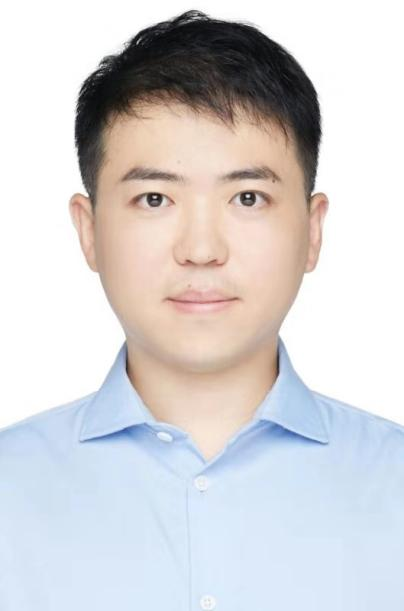
Dr. Lei Chen, Shandong University
Lei Chen received the B.Sc. and M.Sc. degrees in electrical engineering from Shandong University, Jinan, China, and the Ph.D. degree in electrical and computer engineering from University of Ottawa, Ontario, Canada. He is currently an Associate Professor with the School of Information Science and Engineering, Shandong University, China. His research interests include image processing and computer vision, visual quality assessment and pattern recognition, machine learning and artificial intelligence. He was the principal investigator of projects granted from the National Natural Science Foundation of China, National Natural Science Foundation of Shandong Province, China Postdoctoral Science Foundation, etc. He has published more than 40 papers on top international journals and conferences in recent years including IEEE TIP, Signal Process., ICME, etc. He was awarded the Future Plan for Young Scholars of Shandong University. He served for the ICIGP 2021, ICIGP 2022, IoTCIT 2022, and MLCCIM 2022 as Technical Co-Chair or Publicity Co-Chair.
ITNEC 2023 Keynote Speakers

Prof.Steven Guan, Xi'an Jiaotong-Liverpool University
Steven Guan received his BSc. from Tsinghua University and M.Sc. (1987) & Ph.D. from the University of North Carolina at Chapel Hill. He is currently a Professor and the Director for Research Institute of Big Data Analytics at Xi'an Jiaotong-Liverpool University (XJTLU). He served the head of department position at XJTLU for 4.5 years, creating the department from scratch and now in shape. Before joining XJTLU, he was a tenured professor and chair in intelligent systems at Brunel University, UK.
Prof. Guan has worked in a prestigious R&D organization for several years, serving as a design engineer, project leader, and department manager. After leaving the industry, he joined the academia for three and half years. He served as deputy director for the Computing Center and the chairman for the Department of Information & Communication Technology. Later he joined the Electrical & Computer Engineering Department at National University of Singapore as an associate professor for 8 years.
Prof. Guan’s research interests include: machine learning, computational intelligence, big data analytics, mobile commerce, modeling, networking, personalization, security, and pseudorandom number generation. He has published extensively in these areas, with 130+ journal papers and 180+ book chapters or conference papers. He has chaired, delivered keynote speech for 80+ international conferences and served in 180+ international conference committees and 20+ editorial boards. There are quite a few inventions from Prof. Guan including Generalized Minimum Distance Decoding for Majority Logic Decodable Codes, Prioritized Petri Nets, Self-Modifiable Color Petri Nets, Dynamic Petri Net Model for Iterative and Interactive Distributed Multimedia Presentation, Incremental Feature Learning, Ordered Incremental Input/Output Feature Learning, Input/Output Space Partitioning for Machine Learning, Recursive Supervised Learning, Reduced Pattern Training using Pattern Distributor, Contribution Based Feature Selection, Incremental Genetic Algorithms, Incremental Multi-Objective Genetic Algorithms, Decremental Multi-objective Optimization, Multi-objective Optimization with Objective Replacement, Incremental Hyperplane Partitioning for Classification, Incremental Hyper-sphere Partitioning for Classification, Controllable Cellular Automata for Pseudorandom Number Generation, Self Programmable Cellular Automata, Configurable Cellular Automata, Layered Cellular Automata, Transformation Sequencing of Cellular Automata for Pseudorandom Number Generation, Open Communication with Self-Modifying Protocols, etc.
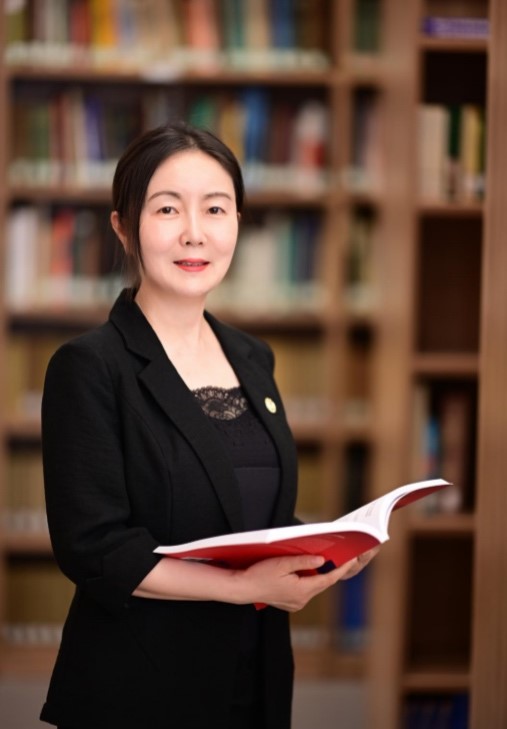
Prof.Xiaoqing Zeng, Tongji University
Xiaoqing Zeng received her bachelor, master and doctor degree from Tongji University in 1990, 1993 and 1995 respectively; She used to learn in Tsinghua University in the summer of 1992 and exchanged in Darmstadt University of Technology in the summer of 2008. Moreover, she worked as postdoctoral in Tokyo Institute of Technology from February, 2000 to October, 2002. She is currently a Professor and PHD supervisor, as well as the Director for Traffic Information and Control United Experimental Center at Tongji University. She served as assistant director of Shanghai Expo Science and Technology Promotion Center, also hold a concurrent post as vice president and secretary general of Shanghai Creative Studies Institute from 2012.
Prof. Zeng has been actively devoting to scientific research in the field of traffic information engineering and control based on the mathematics, mechanics, computer science, civil & environment engineering and, Autonomous Decentralized System (ADS) theory. Besides, her research domain is involved in the Traffic safety and green traffic, traffic signal control, rail scheduling management and public transportation. On the basis of long-term scientific research, she proposed the “Traffic safety and Green Traffic System” which mainly covers the comprehensive traffic system including rail and road traffic from the perspective of engineering to science. What’s more, she undertaken a number of national and Shanghai key projects including “Train Control System Real-Time Mechanism Research Based On Mobile Agent Technology”, ”Bus Travel Information Service Research Based On Vehicle Centralized Scheduling”, ”Ground Public Transportation Network Optimization Decision Support System Based On GIS Platform”, ”Intersection Signal Optimization Control Research in Urban Complex Ground”; In addition, she has published more than 100 papers at international & domestic conferences and articles, participated in the formulation of some professional standard. She has achieved 10 related patents and written 6 books in related field. Furthermore, Prof. Zeng teaches more than 20 undergraduate and graduate courses and has won many awards for teaching achievements.
ITNEC 2021 Keynote Speakers
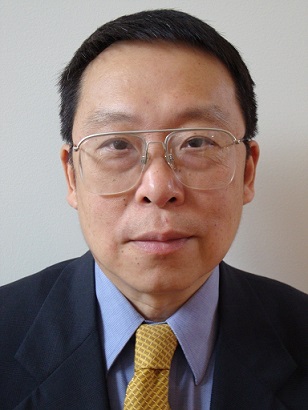
Prof. Li Da Xu, Academician, European Academy of Sciences; Academician, Russian Academy of Engineering; IEEE Fellow, USA
Dr. Li Da Xu is an academician of the European Academy of Sciences, an academician of the Russian Academy of Engineering (formerly USSR Academy of Engineering), an academician of the Engineering Academy of Armenia, and an IEEE Fellow. Dr. Xu is a 2016-2021 Highly Cited Researcher in the field of engineering named by Clarivate Analytics (formerly Thomson Reuters Intellectual Property & Science). Academician Qian Xuesen and other well-known scholars have cited his work. He is a Changjiang Scholar endowed by the Ministry of Education of China. Currently, he is an eminent professor at Old Dominion University, USA. He is the Founding Chair of IFIP TC8 WG8.9, IFIP TC8 WG8.12, Founding Chair of the IEEE SMC Society Technical Committee on Enterprise Information Systems, and Founding Editor-in-Chief of the engineering journals entitled Journal of Industrial Information Integration (SCI) and Enterprise Information Systems (SCIE).

Prof.Gang Li, Deakin University, Australia
Gang Li, PhD, associate professor, IEEE senior member, is the deputy director of D2i research centre, and academic director (Research Training) in the school of Information Technology, Deakin University (Australia). His research interests include data mining, data privacy, causal discovery, and business intelligence. He serves on the IEEE Data Mining and Big Data Analytics Technical Committee (2017-2019 Vice Chair), IEEE Enterprise Information Systems Technical Committee, and as the chair for IEEE Task Force on Educational Data Mining (2020-2023). He is an associate editor for Journal of Information & Knowledge Management (World Scientific), Journal of Travel Research (Sage), Decision Support Systems (Elsevier), IEEE Access (IEEE), Information Discovery & Delivery (Emerald) and Human-Centric Computing and Information Sciences (Springer).
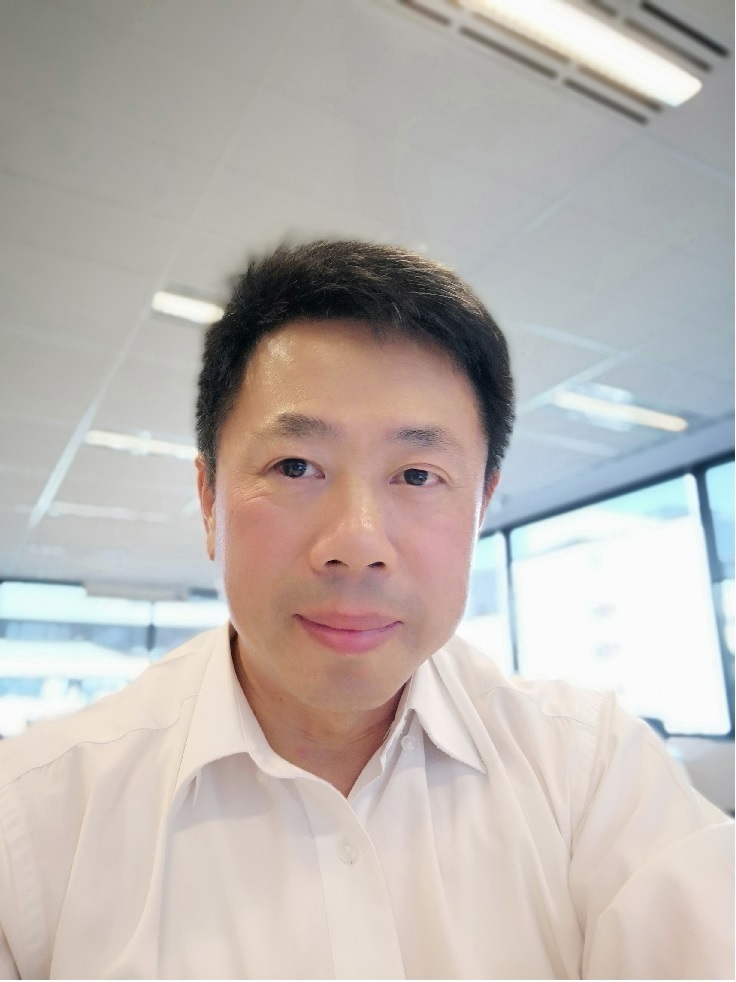
Prof.Yale Yu, Enterprise Architecture Consultant, TAP Ltd, Australia
Yale has more than 37 years’ intensive business & industry consulting experiences, specially in enterprise strategic transformation and enterprise IT services delivery and strategic planning crossing multiple industries such as telecommunication, entertainment, oil/energy, finance, supply chain and public sectors (education and government); and worked for big international companies, such as HP, EDS, Infosys, Ericsson, Fujitsu, to provide high end enterprise IT strategic transformation and implementation services to their key clients around the world, with strong capability of understanding both business and technical problems based on his accumulated hands on experiences of enterprise IT strategy and architecture development and IT projects delivery and higher education background in IT & computer science and business administration & management.
Yale has played some key roles in his professional career, such as CTO & Chief enterprise architect, Enterprise architecture consulting executive & principal industry consultant at HP APJ ES, EAI portfolio lead architect & principal enterprise architect at Infosys Australia, EAI domain manager & lead solution architect at Ericsson Australia, senior eCommerce consultant at Soprano Design, senior lecturer & chief researcher; lab director, project manager in Xi’an Shiyou (Oil & Gas) University.
Yale was the founder/co-founder of multiple technology companies in China and Australia since 1990. Yale currently also works as director and business & technology strategy advisor for multiple new technology companies in ITO, Cloud Data Centre, Big Data, AI/Machine Learning and Blockchain both China and Australia since 2010.
Yale was invited as a guest/plenary speaker by internationally authoritative forums/conferences, such as TMF World Management Conference 2010, IEEE International Conference of Enterprise Systems 2014 (awarded as distinguished plenary speaker by IEEE), IEEE International Conference of Advanced Information Management, Communicates, Electronic and Automation Control 2016 on topics of architecting future enterprise, enterprise transformation IT Strategy, enterprise architecture development and IT strategic planning aligning with emerging technologies as cloud computing and digital edge. Yale was also the co-chairman of IEEE International Conference of Enterprise Systems 2016 (Melbourne, Australia) in 2016 and was invited to organize & manage the IEEE International Conference of Enterprise Systems 2019 in Xi’an, China.
Yale has strong credentials in academic research with publishing over 31 journal & conferences papers and 2 books with approximate 12 years professional university teaching career as a lecturer (1985 - 1996). Yale is now holding the title of honorary professor of Xian Shiyou University since 2004, and guest professor and innovation & entrepreneurship mentor/advisor of Xi’an Peihua University since 2015. Yale also gave lectures on the core subject Enterprise Architecture of Master Degree of enterprise architecture in University of RMIT as a guest lecturer during 2009 - 2010.
Yale also holds the Honours Electronic Automation Engineering BA (Xian Shiyou University, 1985), Honours Computer Science Master Degree (Auckland University, 2000) and Executive MBA (Business School of RMIT University, 2010.
ITNEC 2020 Keynote Speakers
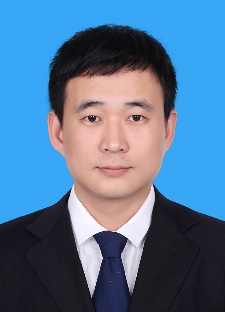
Prof.Daxin Tian, Beihang University
Daxin Tian is a professor and the associate dean in the School of Transportation Science and Engineering, Beihang University, Beijing, China. He is awarded by Young Scholars of the Yangtze River and National Outstanding Youth Science Foundation. He has authored/co-authored about 100 journal/conference papers and book chapters. His current research interests include connected vehicles, vehicular ad hoc networks, swarm intelligence, and intelligent transportation systems. He is a senior member of IEEE, CCF and ITSC. He is serving on the associate editor of IEEE Internet of Things Journal, Journal of Intelligent and Connected Vehicles.
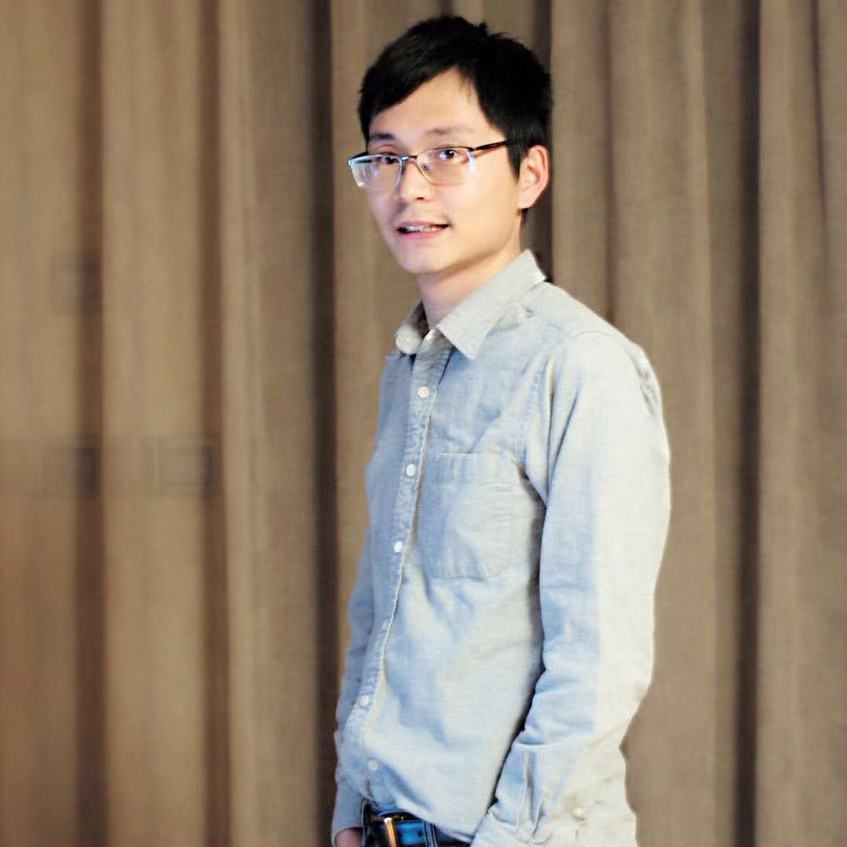
Prof.Chao Chen, Chongqing University
Chao Chen is a full professor at College of Computer Science, Chongqing University, Chongqing, China. He obtained his Ph.D. degree from Pierre and Marie Curie University and Institut Mines-Telecom/Telcom SudParis, France in 2014. He received the B.Sc. and M.Sc. degrees in control science and control engineering from Northwestern Polytechnical University, Xi'an, China, in 2007 and 2010, respectively. Dr. Chen got published over 100 papers including 20 ACM/IEEE Transactions. His work on taxi trajectory data mining was featured by IEEE Spectrum in 2011 and 2016 respectively. He was also the recipient of the Best Paper Runner-Up Award at MobiQuitous 2011. His research interests include pervasive computing, mobile computing, urban logistics, data mining from large-scale GPS trajectory data, and big data analytics for smart cities.
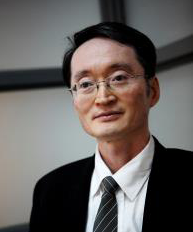
Prof.Steven Guan, Xi'an Jiaotong-Liverpool University
Steven Guan received his BSc. from Tsinghua University and M.Sc. (1987) & Ph.D. from the University of North Carolina at Chapel Hill. He is currently a Professor and the Director for Research Institute of Big Data Analytics at Xi'an Jiaotong-Liverpool University (XJTLU). He served the head of department position at XJTLU for 4.5 years, creating the department from scratch and now in shape. Before joining XJTLU, he was a tenured professor and chair in intelligent systems at Brunel University, UK.
Prof. Guan has worked in a prestigious R&D organization for several years, serving as a design engineer, project leader, and department manager. After leaving the industry, he joined the academia for three and half years. He served as deputy director for the Computing Center and the chairman for the Department of Information & Communication Technology. Later he joined the Electrical & Computer Engineering Department at National University of Singapore as an associate professor for 8 years.
Prof. Guan’s research interests include: machine learning, computational intelligence, big data analytics, mobile commerce, modeling, networking, personalization, security, and pseudorandom number generation. He has published extensively in these areas, with 130+ journal papers and 180+ book chapters or conference papers. He has chaired, delivered keynote speech for 80+ international conferences and served in 180+ international conference committees and 20+ editorial boards. There are quite a few inventions from Prof. Guan including Generalized Minimum Distance Decoding for Majority Logic Decodable Codes, Prioritized Petri Nets, Self-Modifiable Color Petri Nets, Dynamic Petri Net Model for Iterative and Interactive Distributed Multimedia Presentation, Incremental Feature Learning, Ordered Incremental Input/Output Feature Learning, Input/Output Space Partitioning for Machine Learning, Recursive Supervised Learning, Reduced Pattern Training using Pattern Distributor, Contribution Based Feature Selection, Incremental Genetic Algorithms, Incremental Multi-Objective Genetic Algorithms, Decremental Multi-objective Optimization, Multi-objective Optimization with Objective Replacement, Incremental Hyperplane Partitioning for Classification, Incremental Hyper-sphere Partitioning for Classification, Controllable Cellular Automata for Pseudorandom Number Generation, Self Programmable Cellular Automata, Configurable Cellular Automata, Layered Cellular Automata, Transformation Sequencing of Cellular Automata for Pseudorandom Number Generation, Open Communication with Self-Modifying Protocols, etc.
ITNEC 2019 Keynote Speakers
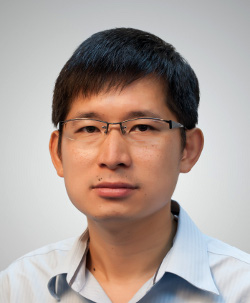
Dr. Adams Wai Kin Kong, Nanyang Technological University, Singapore
Dr. Adams Wai Kin Kong received the Ph.D. degree from the University of Waterloo, Canada. Currently, he is an associate professor at the Nanyang Technological University, Singapore. His papers have been published in leading journals and conferences in his research areas, including TPAMI, TIP, TIFS, TCSVT, Pattern Recognition, CVPR, EECV, IJCAI, ICB and BTAS. One of his papers was selected as a spotlight paper by TPAMI and another was selected as Honorable Mention by Pattern Recognition. With his students, he received best student paper awards in The IEEE Fifth International Conference on Biometrics: Theory, Applications and Systems (BTAS), 2012 and IEEE International Conference on Bioinformatics and Bioengineering, 2013. Dr. Kong received a number of awards from Singapore government for his cooperation with Singapore Police Force and the best reviewer award in BTAS 2016. In the summer of 2008, he served as an expert witness to the U.S. Department of Justice for a case of child sexual abuse. Currently, he is serving as an associate editor for IEEE Transactions on Information Forensics and Security. He has developed ten patents. His research interests include pattern recognition, image processing, biometrics, and forensics.
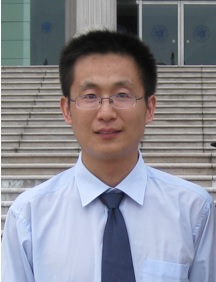
Prof.Bo Liu, Xidian University, China
Professor Bo Liu received the B.A. degree in biotechnology from Zhejiang University, Hangzhou, China, in 2001, and the Ph.D. degree in applied mathematics from Fudan University, Shanghai, China, in 2010. He was a Post-Doctoral Fellow with School of Life Sciences, Fudan University from 2010 to 2012, and a Post-Doctoral Researcher with the Institute of Industrial Science, The University of Tokyo from 2012 to 2014. Since 2014, he has been a professor with Key Laboratory of Intelligent Perception and Image Understanding of the Ministry of Education of China, School of Electronic Engineering (School of Artificial Intelligence since November, 2017), Xidian University, Xi’an. His major research interests is the theory of coordination in complex networks, including consensus and synchronization, among others. In the past decade, he has systematically investigated the role that the network structure plays, including switching topology, time delay, as well as general coupling weights, in the convergence properties of these coordination processes. For that purpose, he has developed several analytic tools, among which the most notable may be some generalization of the classical product theory of stochastic matrices.
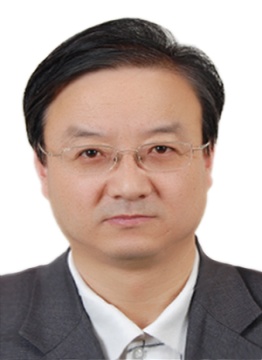
Prof.Li Suoping, Lanzhou University of Technology, China
Li Suoping, IEEE Member, is a full professor of school of science at Lanzhou University of Technology (LUT), China. He received the Ph.D. degree in Signal and Information Processing from Beijing Jiaotong University, China, in 2004. He hold a M.Sc. degree in research field of Stochastic Model with Applications from Lanzhou University in 1996, and B.Sc. degree in Mathematics from Northwest Normal University in 1986. He was a visiting scholar at Swiss Federal Institute of Technology Zurich (ETH) from May 2007 to May 2008, and also a visiting professor at American East Texas Baptist University (ETBU) from Aug to Dec 2011. Professor Li also has made short-term academic exchanges and visits to Moscow University of Power Engineering, St. Petersburg National University of Electronic Information Technology, Belfort Montreal University of Technology in France, and L’Aquila University in Italy. He has successively held the posts of vice Dean, Dean and Director of International Cooperation Department of Lanzhou University of Technology from 2015 to 2016. His primary research interests include stochastic control theory and applied stochastic process, stochastic modeling analysis of wireless communication systems, cooperative communications, ad hoc network, cognitive radio network, and wireless sensor network.
As a doctoral supervisor in control science and engineering, Prof. Li has trained 75 graduate students. He has hosted and participated in more than 10 National and Provincial scientific research projects, and undertook one international cooperation project of the European Union. His achievements have won one first prize for scientific and technological progress in Gansu Province and five second and third prizes for scientific and technological progress in Universities in Gansu Province. More than 70 academic papers have been published, of which more than 30 have been indexed by SCI/EI. Guiding undergraduates to participate in the International Mathematical Modeling Competition won 2 first prizes and 2 second prizes. Guiding postgraduates to participate in the National Graduate Mathematical Modeling Competition won 1 first prize and 6 second and third prizes. As a manuscript reviewer, he serves in many international journals such as ETRI Journal、IEEE Transactions on Vehicular Technology、IEEE Access、Wireless Personal Communication, etc.. He is a member of the Eighth Council of the Chinese Society of Systems Engineering, and an expert in communications evaluating of projects of the National Natural Science Fund.
ITNEC 2017 Keynote Speakers

Prof.H.Sally Xie, Illinois State University, USA
Prof. Haiyan Sally Xie (Ph.D., PE, CPC, M.ASCE) received her Ph.D. from University of Florida in 2005. She is currently an Associate Professor at the Department of Technology, Illinois State University (ISU). Prior to joining ISU, she was a full professor in the University of Arkansas at Little Rock (UALR) for 9 years. She has over 5 years of industry experience as a project manager. She was the funding director for the Master of Science Program in the Department of Construction Engineering and Management at UALR. Dr. Xie served as chairperson of 6 thesis committees for graduate learning and research at ISU. Her professional contribution includes: Consultant for 3 international companies; Project Manager for 2 companies in both the US and China; Research Assistant at University of Florida; Graduate Program Coordinator at UALR. Her publications include over 50 peer-reviewed scientific papers in professional journals and proceedings, 7 books and book chapters, and 3 technical reports. She has many scholarly presentations at the national/international academic conferences. She was involved in obtaining and executing several external research grant projects. She received the ISU "Department of Technology Distinguished Research Award" in 2014 and the UALR “Northrop Young Professor Award” in 2010. Dr. Xie’s primary research interests are in Smart City, Building Information Modeling, Simulation and Control, Data Analytics in Infrastructure Systems, Intelligent Systems, Circular Economy, Sustainability and Energy Analysis, Construction Graphics, Project Delivery Methods, Innovation Management, Virtual Reality, Sustainable Intelligent Highway, etc. Dr. Xie is very active in service activities as well. She served a number of college and department committees, as well as international conference committees. Dr. Xie serves the Graduate Council of ISU and Graduate Committee of the department. She also served on the review boards for multiple journals and conferences. She invited 8 international scholars from China to ISU to join her research projects. Together, they completed and submitted 12 papers to prestigious international journals and 5 grants for advanced research in the past 2 years.
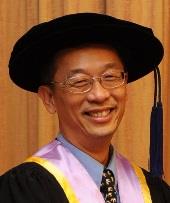
Prof.LIM TONG MING, TUNKU ABDUL RAHMAN UNIVERSITY COLLEGE, Malaysia
Professor Lim has about 10 years of industry experiences in the design, development,implementation and maintenance of commercial software from 1989 to 1999 after departing from TARC where he spent his early days with TARC as an IT lecturer from 1987 to 1989 after returning from Mississippi State University USA with a Master of Computer Science degree. Being an expert in many commercial software applications on several OSs (designed and built on MS-DOS, LINUX and MS-Windows 1.x,2.x,3.x) using programming languages such as BASIC, PICK OS, DBASE, FOXBASE, FOXPRO, CLIPPER, REVELATION 4GL for the industry. In 1999, Professor Lim left the software industry and joined the academic after he enrolled in PhD programme with University of Malaya under Prof Lee Sai Peck (on 1997). While he is an academics with Monash University, UTAR and Sunway University, he is still actively involved in consultation works on product design and solution innovation till to-date. Professor Lim has more than 20 years of academic exposure with four universities. They are Tunku Abdul Rahman College (TARC), Monash University, Universiti Tunku Abdul Rahman (UTAR) and Sunway University. Having many years of exposure in the software industry and academics world, Professor Lim understands very well the needs and requirements of the software industry (to provide solutions in sectors such as accounting, distribution, manufacturing and point-of-sales) and research innovations in the academics world, Professor Lim has vast experience and deep understanding of industrial driven applied research projects and he is able to link the needs of the software industries and contributions from the academics research. In the past 20+ years, Professor Lim has always focused consistently on projects and research topics in the areas on the use of object technologies in software engineering and databases in his early days (while he was with University of Malaya and Monash). He also has spent more than 10 years in peer to peer technologies related research as he was with UTAR and Sunway University. In the most recent years, his work has consistently focused on organizational knowledge sharing and technology acceptance, social media analytics and social influence maximization. Professor Lim has graduated many master and PhD students while he was with Monash, UTAR and Sunway University. In order to support these projects and postgraduate students in their studies, Professor Lim has secured grants from many agencies. These grants are provided by FRGS, IRPA, eScience, SKMM, MDEC, internal grants from Monash University, UTAR and Sunway University. In his career, Professor Lim has either supervised or co-supervised with experts from other universities such as UUM (AP Dr Thi Lip Sam) or Lancaster 2 University (Dr Andreas Mauthe and Professor Don Passey) to enhance the learning process of these postgraduate students who focus on topics of different dimensions. Professor Lim is a senior member for professional bodies such as ACM and affiliate member for IEEE Computing Chapter. Professor Lim is also an external moderator for KBU and Wawasan Open University, journal reviewer for Malaysian Journal of Computer Science and technical assessor for MDEC grants. With his vast experience both from the software industry and academics, Professor Lim is able to provide leadership in teaching and learning, research and industry projects development, and academics administration services to junior staff in any established Universities.

Prof.Steven Guan, Xi'an Jiaotong-Liverpool University
Prof.Steven Guan received his M.Sc. & Ph.D. from the University of North Carolina at Chapel Hill. He is currently a Professor and the Director for Research Institute of Big Data Analytics at Xi'an Jiaotong-Liverpool University (XJTLU). He served the head of department position at XJTLU for 4.5 years, creating the department from scratch and now in shape. Before joining XJTLU, he was a tenured professor and chair in intelligent systems at Brunel University, UK. Prof. Guan has worked in a prestigious R&D organization for several years, serving as a design engineer, project leader, and department manager. After leaving the industry, he joined Yuan-Ze University for three and half years. He served as deputy director for the Computing Center and the chairman for the Department of Information & Communication Technology. Later he joined the Electrical & Computer Engineering Department at National University of Singapore as an associate professor. Prof. Guan’s research interests include: machine learning, intelligent systems, computational intelligence, big data analytics, data mining, personalization, modeling, security, networking, electronic commerce, mobile commerce, coding theory, and pseudorandom number generation. He has published extensively in these areas, with 130+ journal papers and 180+ book chapters or conference papers. He has chaired and delivered keynote speeches for 40+ international conferences and served in 170+ international conference committees and 20+ editorial boards.
ITNEC 2016 Keynote Speakers
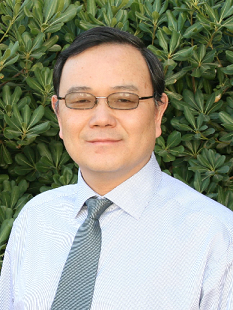
Prof.Yinong Chen, Arizona State University, USA
Yinong Chen received his Ph.D. from the University of Karlsruhe (KIT), Germany, in 1993. He did postdoctoral research at KIT in 1993 and at the LAAS-CNRS (Laboratory of Architecture and Analysis of Systems - French National Scientific Research Organization), France in 1994. From 1994 to 2000, he was with the Wits University at Johannesburg, South Africa. He was the funding director for the Highly Dependable System Research Program at the university and a rated research fellow at South African National Science Foundation. Dr. Chen joined Arizona State University in 2001 and is a senior lecturer in Computer Science, a Ph.D. student advisor in Computer Engineering, the director of the Internet of Things and Robotics Education Laboratory, and an honors faculty in the Barrett Honors College of the university. Dr. Chen is an area editor of the Elsevier Journal: Simulation Modeling Practice and Theory, since Jan 2006 an associate editor of the International Journal of Simulation and Process Modelling (IJSPM) since Jan 2004, and an editorial board member of the Journal of Systems & Software (JSS) since Jan 2004. Dr. Chen’s primary research interests are in service-oriented computing, cloud computing, Robot as a Service, Internet of Things, and computer science education. He (co-) authored ten books and over 170 technical papers in these areas, including the textbooks 《Service-Oriented Computing and Web Software Integration》 5th edition 2015, 《Introduction to Programming Language》 4th edition, 2015 published in the U.S., and《面向服务的计算和Web数据管理—从原理到开发》2013, 《计算机科学导论:基于机器人的实践方法》2013, and 《浅谈深析面向服务的软件工程》2008, published in China. Dr. Chen is an area editor of the Elsevier Journal: Simulation Modeling Practice and Theory, since Jan 2006, an associate editor.

Prof.Qin Xin, University of the Faroe Islands, Faroe Islands, Denmark
Prof.Qin Xin graduated with his Ph.D (Oct. 2002 -- Nov. 2004) in Department of Computer Science at University of Liverpool, UK in December 2004. Currently, he is working in Department of Science and Technology at University of the Faroe Islands (UoFI), Faroe Islands as a FULL professor of Information and Communication Technology. Prior to joining UoFI, he had held variant research positions in world leading universities and research laboratory including Senior Research Fellowship at Universite Catholique de Louvain, Belgium, Research Scientist/Postdoctoral Research Fellowship at Simula Research Laboratory, Norway and Postdoctoral Research Fellowship at University of Bergen, Norway. His main research focus is on design and analysis of sequential, parallel and distributed algorithms for various communication and optimization problems in wireless communication networks. Moreover, he also investigates the combinatorial optimization problems with applications in Bioinformatics, Data Mining and Space Research. Currently, Prof. Dr. Xin is serving on Management Committee Board of Denmark for several EU projects. Dr. Xin has produced more than 70 peer reviewed scientific papers. His works have been published in leading international conferences and journals, such as ICALP, ACM PODC, SWAT, IEEE MASS, ISAAC, SIROCCO, IEEE ICC, Algorithmica, Theoretical Computer Science, Distributed Computing, IEEE Transactions on Computers, Journal of Parallel and Distributed Computing, IEEE Transactions on Dielectrics and Electrical Insulation, and Advances in Space Research. He has been very actively involved in the services for the community in terms of acting on various positions (e.g., Session Chair, Member of Technical Program Committee, Symposium Organizer and Local Organization Co-chair) for numerous international leading conferences in the fields of distributed computing, wireless communications and ubiquitous intelligence and computing, including IEEE MASS, IEEE LCN, ACM SAC, IEEE ICC, IEEE Globecom, IEEE WCNC, IEEE VTC, IFIP NPC, IEEE Sarnoff and so on. Note also that he is serving on the editorial boards for more than ten international journals.

Prof.Steven Guan, Xi’an Jiaotong-Liverpool University
Prof.Steven Guan received his M.Sc. & Ph.D. from the University of North Carolina at Chapel Hill. He is currently a Professor and the Director for Research Institute of Big Data Analytics at Xi'an Jiaotong-Liverpool University (XJTLU). He served the head of department position at XJTLU for 4.5 years, creating the department from scratch and now in shape. Before joining XJTLU, he was a tenured professor and chair in intelligent systems at Brunel University, UK.
Prof. Guan has worked in a prestigious R&D organization for several years, serving as a design engineer, project leader, and department manager. After leaving the industry, he joined Yuan-Ze University in Taiwan for three and half years. He served as deputy director for the Computing Center and the chairman for the Department of Information & Communication Technology. Later he joined the Electrical & Computer Engineering Department at National University of Singapore as an associate professor.
Prof. Guan’s research interests include: machine learning, modeling, security, networking, and pseudorandom number generation. He has published extensively in these areas, with 130+ journal papers and 180+ book chapters or conference papers. He has chaired and delivered keynote speech for 20+ international conferences and served in 150+ international conference committees and 20+ editorial boards.







